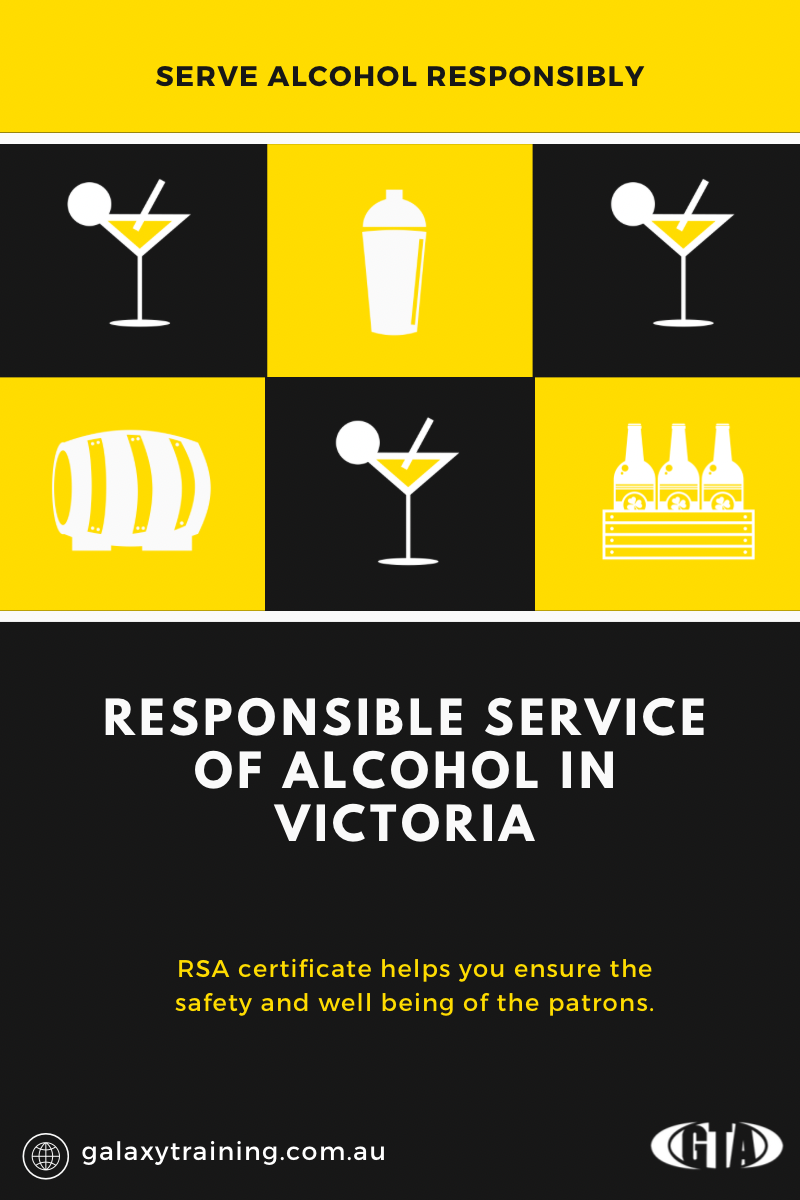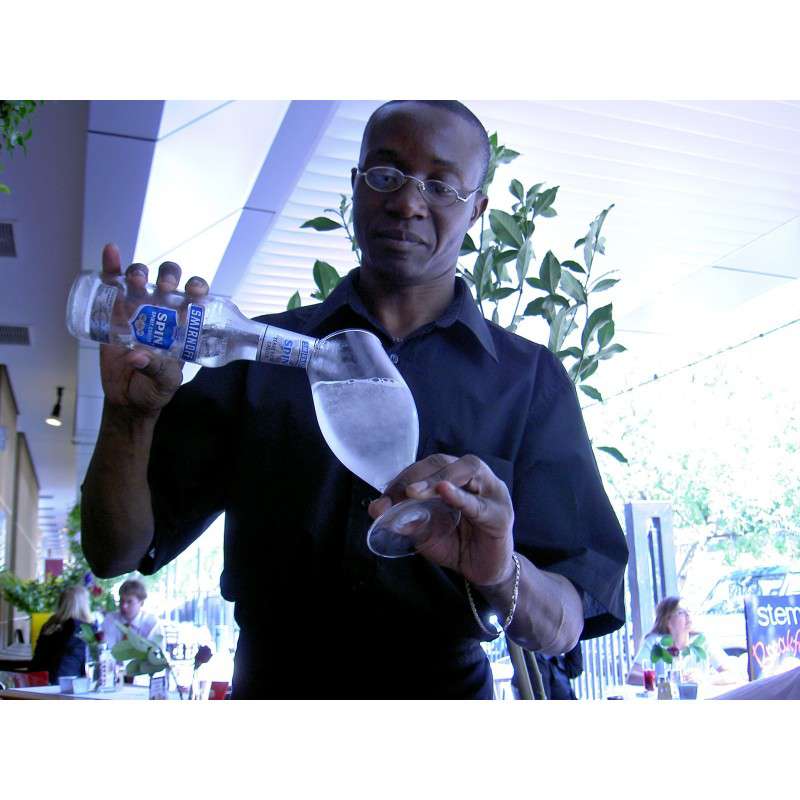safeserve Training: The Key to Obtaining Food Safety Credentials
safeserve Training: The Key to Obtaining Food Safety Credentials
Blog Article
Master Responsible Alcohol Solution With Comprehensive Accreditation Programs
The proficiency of accountable alcohol service is not merely a governing need; it is an essential aspect that boosts the reputation and functional integrity of facilities within the hospitality industry. Comprehensive certification programs use very useful understandings right into regional laws, efficient intervention techniques, and client engagement strategies. By spending in these training efforts, companies can foster a culture of duty amongst their team, mitigating threats and boosting consumer complete satisfaction. The path to effective execution and its long-term benefits may not be as straightforward as it appears. What challenges exist in advance for those who seek to raise their service criteria?

Importance of Liable Alcohol Service
Liable alcohol service is necessary to advertising public health and safety in establishments that serve alcoholic drinks. It includes an array of techniques developed to prevent the overconsumption of alcohol, lower the threat of alcohol-related injury, and make sure a secure atmosphere for customers and personnel alike. By supporting accountable solution requirements, facilities can minimize prospective cases of intoxication, which may result in mishaps, physical violence, or other unfavorable end results.
Moreover, liable alcohol service boosts the overall consumer experience. Patrons are most likely to return to facilities that prioritize their security and health. This dedication promotes a favorable reputation, motivating word-of-mouth recommendations and repeat service. Additionally, facilities that comply with liable solution methods typically experience lower insurance policy costs and reduced lawful obligations.
Furthermore, implementing responsible alcohol solution methods aligns with wider public health and wellness initiatives intended at decreasing drug abuse and promoting area wellness. This positive approach not just secures private customers however also adds to a healthier society. Ultimately, liable alcohol service is not simply a lawful obligation; it represents an honest dedication to the health of consumers and the community at large.
Key Parts of Certification Programs
Certification programs for responsible alcohol solution usually encompass a number of crucial parts developed to furnish personnel with the required abilities and understanding to offer alcohol safely. First and primary, these programs frequently include detailed training on neighborhood and state alcohol laws, making sure that individuals understand their lawful obligations and the repercussions of stopping working to abide.
One more critical component is the recognition of indicators of drunkenness - servsafe food handlers card. Personnel are educated to identify behavior hints suggesting when a client may be over-served, enabling them to intervene appropriately
Additionally, reliable communication techniques are emphasized, educating staff exactly how to engage with customers in a manner that promotes responsible drinking. This consists of training in dispute resolution methods, allowing team to deal with tight spots steadly and professionally.
In addition, programs often integrate useful situations and role-playing exercises, giving individuals with real-life examples to practice their abilities. Finally, continuous education and sources are necessary for preserving knowledge and skills over time, as guidelines and ideal practices develop. Together, these elements produce a comprehensive structure that empowers team to foster a safer drinking environment while minimizing liability for facilities.
Advantages for Personnel and Facilities
Personnel and facilities alike reap substantial gain from joining liable alcohol service qualification programs. For staff, these programs enhance expertise and abilities associated with alcohol solution, furnishing them to recognize indicators of intoxication and carry out effective treatment strategies. This training not just fosters a feeling of confidence amongst workers but additionally promotes a culture of safety and security and obligation in the work environment.
For facilities, buying accreditation programs can bring about lowered responsibility and fewer incidents associated with over-serving. By making sure that team are trained in responsible service practices, establishments can mitigate threats connected with alcohol-related occurrences, thus securing their track record and financial security. Furthermore, many territories offer motivations, such as reduced insurance costs, for accredited facilities.
Furthermore, implementing licensed methods can boost consumer fulfillment and loyalty. Customers are more probable to return to locations that prioritize their safety and security go to my blog and health. Ultimately, a commitment to accountable alcohol solution not just cultivates a positive atmosphere but also boosts the total operational performance of establishments, making it a smart investment for lasting success in the friendliness you could look here sector.
Typical Difficulties in Alcohol Solution
Making certain reliable alcohol service is not without its difficulties, also in establishments dedicated to liable methods. One significant obstacle is the requirement for staff to accurately analyze customers' alcohol consumption levels. servsafe food handlers card. This requires an eager understanding of exactly how numerous factors, such as food intake, resistance, and individual differences, affect drunkenness
In addition, the stress to optimize sales can conflict with responsible service methods. Workers might face difficulties in refusing service to intoxicated individuals, specifically in social environments where peer stress and assumptions are prevalent.
An additional obstacle is staying upgraded with regional laws and regulations pertaining to alcohol service. Conformity is critical, yet constant adjustments in legislation can develop complication and might result in inadvertent offenses.
Training programs might not always cover the nuances of real-world situations, leaving staff ill-equipped to handle intricate circumstances. Inconsistent interaction in between monitoring and staff members relating to expectations for liable service can better worsen these problems.
To browse these difficulties efficiently, facilities have to foster a setting of assistance, emphasizing the value of responsible service while offering the necessary devices and training Learn More for team to succeed.
Actions to Get Certification
To get Accountable Alcohol Service Qualification, candidates normally start by looking into the specific needs mandated by their regional governing authorities. These demands might differ significantly relying on the area, so it is necessary to familiarize oneself with the relevant laws and regulations.

After selecting a program, candidates have to finish the requisite training, which generally covers subjects such as identifying intoxication, recognizing lawful responsibilities, and carrying out techniques for accountable service. Individuals need to proactively engage with the material, as this understanding is essential for effective alcohol service.

Adhering to training, candidates typically take an assessment to analyze their understanding of the material. Effective completion of this analysis results in accreditation.
Conclusion
To conclude, grasping responsible alcohol service via thorough accreditation programs is vital for advertising safety and security and enhancing client experiences within the hospitality market. By equipping staff with the needed expertise and skills, facilities not just reduce dangers associated with overconsumption and lawful liabilities but additionally cultivate a culture of duty. This commitment to accountable solution ultimately causes raised consumer loyalty and functional success, strengthening the value of recurring training and adherence to alcohol solution standards.
Report this page